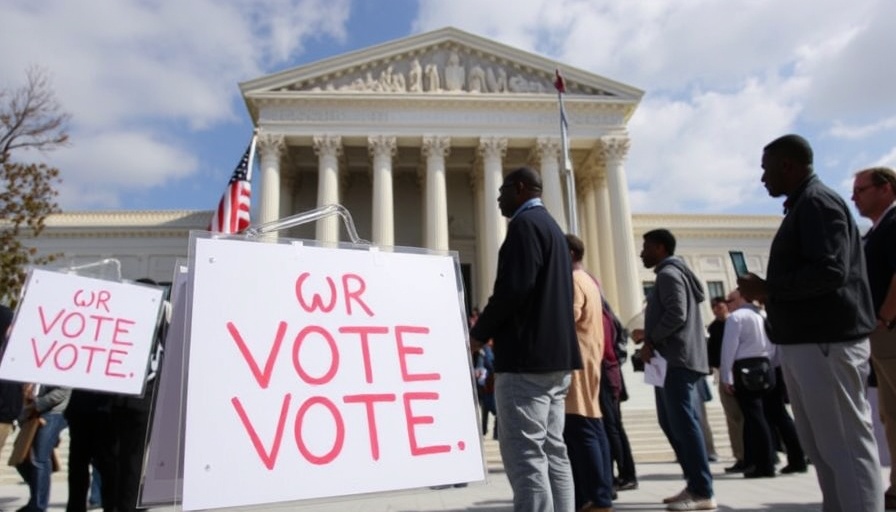
Supreme Court’s Critical Showdown on Voting Rights
The U.S. Supreme Court is preparing to hear a pivotal case concerning the Voting Rights Act, a cornerstone of the civil rights movement that safeguards against racial discrimination in voting. This case, Louisiana v. Callais, emerges amidst ongoing concerns about the political landscape and how it affects minority representation.
Historical Context and Background
Passed in 1965, the Voting Rights Act was designed to eliminate barriers to voting for African Americans and other racial minorities. For decades, it has been regarded as essential to ensuring equal representation and participation in the electoral process. This current case could significantly alter the landscape for minority voting rights. The Supreme Court's earlier decision in Shelby County v. Holder (2013) already weakened federal oversight of states with histories of discrimination by eliminating pre-screening for changes in voting laws, further complicating the protection of marginalized voters.
The Stakes of the Case
The forthcoming ruling on Louisiana's congressional map holds considerable implications. If the Supreme Court decides in favor of Louisiana, it could potentially eliminate one of the last effective tools for challenging racially discriminatory voting practices. Legal experts assert that the outcome may endanger minority representation across the country, strengthening the Republican Party's grip on congressional districts without significant pushback from Democratic voters.
Colorblindness vs. Racial Justice: A Legal Debate
The central question at stake is whether the intentional creation of majority-minority districts violates the Fourteenth and Fifteenth Amendments, which guarantee equal protection and prohibit voting discrimination. Critics, including civil rights advocates, argue that eroding Section 2 of the Voting Rights Act—now under scrutiny—could usher in a regression toward the systemic voting barriers that the original legislation sought to dismantle.
Grassroots Responses and Engaged Communities
Grassroots movements in states like Louisiana are mobilizing in response to these legal battles. Activists emphasize the importance of local history and advocacy in understanding the profound impacts of legislative maps. As seen in Louisiana, where Black voters represent about one-third of the population yet had only one majority-Black district out of six post-2020 census, there is an urgent need for equitable representation in Congress. Community leaders and local organizations are advocating fiercely to protect minority districts and counter any attempts to dilute voter power.
Personal Narratives and the Fight for Representation
Personal stories from members of communities affected by these policies illustrate the human cost of potential Supreme Court decisions. Individuals like Martha Davis, who grew up in segregated schools, express deep concern over the erosion of voting rights, describing how representation impacts everyday necessities such as health services and infrastructure in their communities. The ability to elect representatives who understand and address local issues remains a high priority for voters of color in the state.
Future Predictions: What Happens Next?
As the Supreme Court deliberates, many are watching closely to see if this ruling will reinforce or dismantle the remaining protections for minority voters. Depending on the outcome, the political fabric of districts may shift dramatically, leading to increased efforts to redraw lines that further entrench existing political powers while diluting minority voices. Activists fear that a negative ruling could flash a warning sign throughout the country whenever equal rights legislation faces judicial scrutiny.
Take Action Now: Understand Your Rights
As the legal landscape for voting rights shifts, it's crucial for community members to stay informed and engage in local advocacy. The implications of the Supreme Court's decision will affect the fabric of equality in democracy, emphasizing the importance of civic participation and awareness. Participate in local discussions, educate your community about voting rights, and advocate for equitable representation to ensure that every voice matters in the electoral process.
 Add Row
Add Row  Add
Add 



Write A Comment